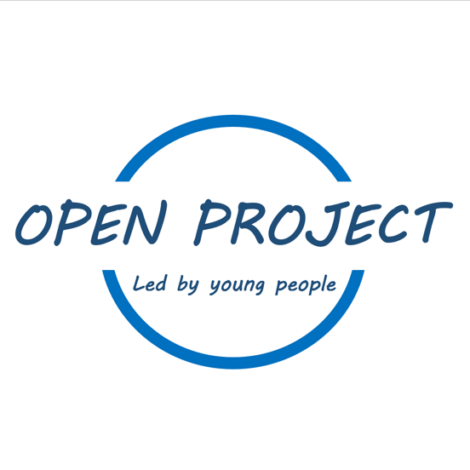Community / Peer research on alcohol and drugs culture among young people provides valuable results
A PIONEERING new study on young people’s attitudes to alcohol and drugs in Shetland has highlighted the wider culture, peer pressure, lack of opportunities and stigma as key factors around substance use.
More than 200 young people, aged between 14 and 26, took part in the study carried out by the OPEN peer research project, which included online surveys, interviews and focus groups.
It is a complex issue, but OPEN – led by young people themselves – sought to explore why people under 26 were using alcohol and drugs, and not what they were taking.
Shannon Boston, one of the lead researchers, felt the most important takeaway from the work so far was the “need for open and honest conversations in families, relationships and communities”.
“Everyone needs to commit to this,” she told Shetland News. “The problem does not lie with young people, it lies with everyone. And young people are saying that adults need to change and lead the way.”
The findings of the research were presented to a meeting of OPEN youth volunteers in Lerwick on Tuesday.
OPEN, which recently became a charity, recruits and trains young people aged 16-25 to become ‘peer educators’.
Its main purpose is to embed peer education across Shetland as a methodology of raising awareness and encouraging positive lifestyle choices among young people – especially on issues concerning substance use, relationships, sexual health and mental health, whilst promoting harm reduction.
The project’s other lead researcher, Akira Foster, said the hope is that folk will listen to what young people are saying.
“They have such valuable things to say – their voices should be listened to, because they’re the ones that are saying the issues that they have and the impact it’s had on them,” she said.
“They’re the ones saying what can be done to help them. They’re not asking for a lot, they’re just asking for the conversations, and the support, and to speak about things without it being bad or looked down on or [having] judgement for it.”
Become a supporter of Shetland News
Some key themes emanating from the 15-month research project, which was supported financially by the British Science Association’s Ideas Fund, include cultural pressure in Shetland, particularly to drink alcohol, and the feeling of being left out if you do not.
A lack of activities and things to do was also raised by some respondents, which they said could lead to alcohol or drug use.
Another key theme was young people feeling stigmatised in the community, particularly from the older generation, and that more dialogue is needed on the topic – including at home with parents.
The research concluded that people need to work together as a community on the issue.
Some anonymous quotes from young people who responded to the research included:
- “If you don’t drink or do drugs then sometimes you’ll just lose a lot of friends.”
- “I think if people like parents or like so many other people didn’t have such bad views on it then people wouldn’t struggle so much to get help when they do start getting into a problem.”
- “I think the crux of the issue [is] that there is hardly anything to do other than drink on the weekend and I think like there’s no way to tip toe around that.”
At Tuesday’s meeting, one volunteer said that because the research was being undertaken by fellow young people, they felt more comfortable to answer honestly and openly.
A couple of the OPEN volunteers also undertook their own pieces of research, including a box where people could submit anonymous responses.
Boston said it was clear from the research that young people were saying they are “getting led by example”.
“Adults are doing what they’re doing out of the pubs, and young people see it and they’re so excited to pass their 18th birthday just so they can get in the pubs too,” she said.
“They aren’t having it modelled by adults that they can go and do different activities and still have as much fun.
“They’re under the impression that that’s how you have fun, and that’s the only narrative that they feel they are getting told. The other narratives might be there, but there’s not the same encouragement.
“There’s not the same aspiration to it, I suppose, and that really is a hindrance in our community that our young people are feeling like that.”
Foster added: “They’re all sort of feeling it that a lot of activities are based around alcohol or drugs and it’s just really hard for them to see things to do outwith that.”
Another factor of this, Boston said, was that some young people are probably witnessing one end of the scale when it comes to alcohol or drug use, and not getting a balanced perspective.
“They are probably seeing people very inebriated or people experiencing problem use, or people ‘geeing it laldy’ on the weekend,” she added.
“And that’s not the modelling that they want. They feel like if we’re seeing one side we should have the balanced side, and because we don’t young people aren’t really getting the full picture until they became adults.”
Reflecting on the experience, Boston said what she found particularly rewarding was watching young people become more outspoken as the process went on – adding that you could “see the cogs turning” in people who are directly affected by alcohol or drug use.
“That’s the whole reason we did this,” she continued. “It’s not what are young people taking…it’s why. What’s the reasons behind that? The people in those classes have related to that more.
“Even if they haven’t spoken up, you feel like you’ve walked away with that sense of ‘I’ve provided a space where they know that they’re not demonised or stigmatised’.
“Innately it’s not bad, it’s somebody looking for some sort of way cope. I think we’ve really tried to give the young people the space to feel comfortable in being able to speak out if they needed help.”
Foster added: “It’s the why they started, and can there be something done to reduce why they’re starting, rather than demonising them because they’re doing it.
“It’s to tackle it before it’s an issue for anyone, to try and help young people in the best way.”
The OPEN peer researchers – both paid and volunteer – were assisted by professional researchers, as well as local alcohol and drug development officer Wendy McConnachie.
McConnachie said she was “delighted” to have been asked to be involved in the project.
“I’d like to congratulate OPEN’s researchers on an incredible piece of work that will be so valuable in shaping our response to young people’s experiences relating to drugs in Shetland,” she said.
More information about OPEN can be found here.
Become a supporter of Shetland News
Shetland News is asking its many readers to consider start paying for their dose of the latest local news delivered straight to their PC, tablet or mobile phone.
Journalism comes at a price and because that price is not being paid in today’s rapidly changing media world, most publishers - national and local - struggle financially despite very healthy audience figures.
Most online publishers have started charging for access to their websites, others have chosen a different route. Shetland News currently has over 600 supporters who are all making small voluntary financial contributions. All funds go towards covering our cost and improving the service further.
Your contribution will ensure Shetland News can: -
- Bring you the headlines as they happen;
- Stay editorially independent;
- Give a voice to the community;
- Grow site traffic further;
- Research and publish more in-depth news, including more Shetland Lives features.
If you appreciate what we do and feel strongly about impartial local journalism, then please become a supporter of Shetland News by either making a single payment or monthly subscription.
Support us from as little as £3 per month – it only takes a minute to sign up. Thank you.





































































